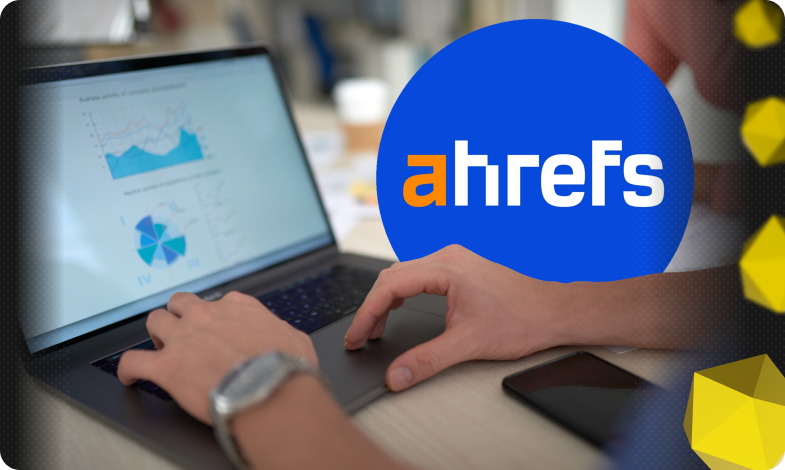Content of the article

Artificial intelligence can not only generate text but also help in the search for information. WEDEX will tell you how to use AI as an alternative to classic search engines.
How is artificial intelligence gradually taking over the search engine niche?
Artificial intelligence burst into our everyday life suddenly. Initially, AI generated strange images, but today it is a powerful tool for solving many issues, including searching for information on the Internet.
As of today, AI can not only generate text or images, provide advice on work or routine activities, but also greatly simplify the process of information search. With the latest updates, AI agents such as ChatGPT, Grok, Brave AI, and others have learned not only to extract information from sources unknown to the user, but also to offer specific links and help structure the data received.
In this article, we’ll talk about 8 interesting AI search features from different developers and how they can be used in SEO.
AI as a search engine: eight interesting options
Thus, unlike a classic search engine, AI agents can not only provide a list of links that are selected by search robots according to the topic, but also «consciously» separate useful information. Yes, AI is not always accurate, but the likelihood of finding the right data quickly sometimes outweighs this temporary feature.
Let’s start our review with the most popular AI at the moment – ChatGPT.
1. ChatGPT and different ways to search
The search function appeared in ChatGPT relatively recently, namely on October 31, 2024. Prior to that, OpenAI had been testing a prototype of the system, which was later named SearchGPT, for almost three months. SearchGPT is not a search engine by itself, but users can use its power in this way.
SearchGPT works on the basis of the well-known ChatGPT interface, and you can access the system directly in a new conversation with a chatbot. Artificial intelligence search is available in the following ways:
- A separate search page for ChatGPT (new chat).
- In an existing chat.
- On the Desktop version of the application.
- On iOS and Android mobile versions.
- ChatGPT Search extension for Google Chrome.
ChatGPT searches for information based on context, understanding search phrases and keywords. This strategy is especially useful when it comes to queries related to geographic data and recent world events.
One of the advantages of ChatGPT is the fact that the most relevant links are usually included in the search results. AI avoids ads and directs the user to genuine websites that match the contextual query.
ChatGPT is able to provide several to five links for a single query, which makes it easier to find a quick answer to all kinds of routine queries like «the best iPhone in 2025» or «which laptop is better for gaming.» On the other hand, a targeted search for a more complex question may take longer.
More importantly, SearchGPT is generally already built into regular ChatGPT, meaning that you don’t need to create a new chat to use AI for search. To do this, you just need to detail the query by adding something like: «In addition to phone information, please add links to reviews.»
In general, ChatGPT can be used for SEO as well, as it will provide the most relevant links and will not be biased in its selection of sources. The results obtained in this AI search should be further studied from the SEO point of view.
2. Grok
Grok is another chatbot that includes AI search functions. It was created by xAI and uses not only the Internet database to provide information but also relies on data from the X network (formerly Twitter). Recently, it has also been able to generate images using the Aurora AI model.
A distinctive feature of Grok is the citation function, which will be useful not only for users but also for SEO specialists. Grok itself is available through the X social network, as well as on a separate web page.
After a specific request, Grok will provide a response with a link to the sources. If the information about the query is available on the X network, the AI will provide links not only to the websites from which it took the information, but also to the posts.
In addition, Grok offers a large number of links to sources – sometimes up to 25 at a time. Similar to ChatGPT, Grok ignores advertisements and provides a brief summary of information from specific sites that are relevant to the topic of the query. This helps the user avoid long scrolling through the search feed in an attempt to find the right site.
Grok can be a really useful tool for SEOs because, like ChatGPT, it provides specific links without unnecessary advertising pages or integrations. Additional advantages include the availability of DeepSearch and DeeperSearch options.
These search options are ideal for more complex queries where the neural network needs to «think through» the content and better understand the context of the question. The user will even be shown the AI’s thought process and the process of finding relevant sources, and then structured information with links.
3. Perplexity
Perplexity is a full-fledged search engine in the format of an AI agent. It looks more like a familiar search engine and has other features that are common to Google Chrome.
Perplexity can work both on the principle of classical information retrieval and in the format of a linguistic language model that can provide contextual answers. AI is based on the Azure infrastructure and the GPT-3 model.
As of now, there are free and paid or professional versions. The only limitation of the free version is the number of queries per day. A user can complete five «professional» requests per day for free, while the rest of the requests will be considered «regular». You can create a user profile for better personalization of answers.
The professional version offers:
- 300 professional searches per day;
- AI models for analyzing search results to choose from (GPT-4o, Claude-3, LLama 3.1);
- unlimited access to file analysis;
- access to image generation.
Perplexity also has several interesting blocks, such as Related, which is the equivalent of Google’s Similar Questions, or Images, where you can find contextual answers, pictures, and photos.
4. YOU AI
YOU AI is a search engine based on artificial intelligence. Although YOU AI offers search engine capabilities, it is actually a cross between an AI and a search engine. YOU AI is a full-fledged search bot that can not only provide information on request but also react to the latest events and news.
As of now, YOU AI offers four AI modes:
- Intelligent mode is the default mode of the neural network.
- Genius Mode – AI «thinking» followed by data visualization in the form of charts and file analysis.
- Research mode – AI offers more thematic and contextual references and relevant quotes.
- Creative mode is a mode in which YOU AI creates images based on a sample.
YOU AI is available as a web version, an iOS and Android app, and a Google Chrome extension.
In response to a request, YOU AI will provide a detailed answer with the sources from which the information was taken. With the latest updates, it is also possible to receive additional contextual images, videos, and news related to the topic of the query. However, the main focus is on finding textual information.
There are three versions of YOU AI: free, Pro, and Team. The free model has a limited number of available queries, while Pro and Team do not. In general, YOU AI provides useful search results, but there are also ads that are unrelated to the content of the query.
5. Andi Search
Andi Search is another full-fledged AI search engine. The AI offers clean search without additional ads and with a focus on user security and privacy. According to the Talc AI SearchBench, Andi Search ranks first in terms of search accuracy, ahead of Google Gemini, ChatGPT, and Perplexity.
The reason for these results is three main differences between Andi Search:
- Andi Search is a full-fledged search engine built on top of AI, not the other way around, like ChatGPT. Andi Search searches for information in context across the entire Internet available to it, not just the most relevant answers from Google, Bing, or Yahoo.
- All additional materials (photos, pictures, reports, and links) are offered in such a way that the content of the answer is in the context of the user’s request, not a simple list.
For the initial query, Andi Search provides a short summary of the most relevant information in its opinion. Below that, there is a «Show Results» button that opens access to more relevant links on the topic. The neural network also offers to generate text based on what it has found.
Another feature of Andi Search is an additional contextual search for images and even videos. For people who care about their online safety, Andi Search also has something to offer – the neural network does not collect cookies, does not share search data. What’s more, Andi Search even blocks Google’s FLoC tracking, so the corporation won’t be able to find out who is searching through this neural network.
Andi Search offers the ability to clear local settings and reset searches, which is also a useful feature. As of now, Andi Search is one of the best options in terms of search depth.
6. Brave AI
Brave AI or Brave Leo AI is another search engine that focuses on privacy and security. Brave has been around for years and is known to most users for its browser. Today, the company is also working on its own AI search engine.
Visually, Brave AI is very similar to Google, but with a simpler and less cluttered interface. In the search bar, there is a button called «Get answers with AI» that will create a comprehensive answer to the query right before all the links found on the topic. Brave AI will also indicate the sources from which the information was pulled.
Brave automatically hides the user’s personal information, including IP address, and the query data is deleted after 30 days. Brave uses the Claude 3 model to provide detailed responses to queries.
Overall, Brave is much closer to classic search engines than all other AI models on the list. It is likely that this is what the browser of the future will look like – a classic link feed with the ability to activate an additional AI mode with a deeper search.
7. Phind
Phind is an information search engine that is positioned as «by developers for developers». It focuses on providing textual information on demand. Phind offers an easy-to-use interface, provides structured answers with links to primary sources, and offers to get more information on a topic with the «Dive deeper» option, which provides additional questions.
One of Phind’s main advantages over other AIs is its focus on programming and topic-specific queries. Phind is able to read and study code, help search for documentation, and process datasets.
Among the system’s drawbacks, I would like to highlight hallucinations. Phind does not suffer from them permanently, but if the query is very complex, the AI will start giving incorrect answers. A significant advantage is links to reputable sources, especially in the field of programming.
There are regular and Pro versions. Pro version owners can choose more advanced linguistic models, such as GPT4o, Claude Sonnet & Opus.
8. SciSpace
While the previous AI system was created primarily for developers, SciSpace, formerly known as Typeset, is designed to simplify the work with scientific research, writing and publishing academic papers.
SciSpace offers access to an extensive database of scientific knowledge containing more than 270 million scientific articles. One of the biggest advantages of this service is the ability to search without specific keywords. Instead of keys, you can use contextual phrases that can be related to the essence of the query only thematically.
An additional advantage for researchers, students, and schoolchildren will be the AI Copilot feature, which will help them better understand the search results and the data they receive. SciSpace has access to 88,000 scientific journals and specialized publishers, which expands the search for any data in the scientific field. Another important tool is plagiarism checking, which is implemented through integration with Turnitin. SciSpace supports more than 75 languages, which makes it possible to search for information not only in English-language sources.
There are four versions of SciSpace: Free with a limited number of queries, Premium with additional language models, Advanced with all the features of Premium and an additional deep analysis mode, Teams with all the features of Advanced and the ability to work in teams.
Conclusions and additional tips
AI search is a new field that is only gaining momentum. However, it is already possible to distinguish at least eight useful neural networks, which is what we have done in this article. The main advantages of AI search are:
- Speed – the user receives a structured answer without having to scroll through the results feed.
- Interpretation – AI will independently provide a brief report on the query and a list of sources used, which the user can research independently.
- No ads – with some exceptions, AI searches are performed without additional ad impressions, and AI agents ignore advertising messages from Google. This allows you to get more specific information unbiased by advertising.
On the other hand, the following risks should be taken into account when using AI to search for information:
- Errors – AI still has a large number of errors in its answers, especially when it comes to complex queries or queries on topics that are not sufficiently covered on the public Internet. In such cases, you can turn to specialized neural networks such as Phind or SciSpace or try to search for information yourself.
- AI hallucinations cannot be attributed to errors, because errors are usually factual in nature. In the case of artificial intelligence, hallucinations are internal problems of the neural network that can occur for various reasons. The main consequence of this is a decrease in accuracy or a complete mismatch of the answer to the original query.
- Monetization – most specialized AIs offer decent search results on a free basis, but the most relevant and accurate results can only be achieved using paid versions.
From the SEO point of view, AI search results should be studied separately in each case – it is likely that the articles that appear in these search results are indeed more relevant and require deeper research to answer the question: «Why was this article perceived as relevant by AI?».






 21/07/2025
21/07/2025  2245
2245



